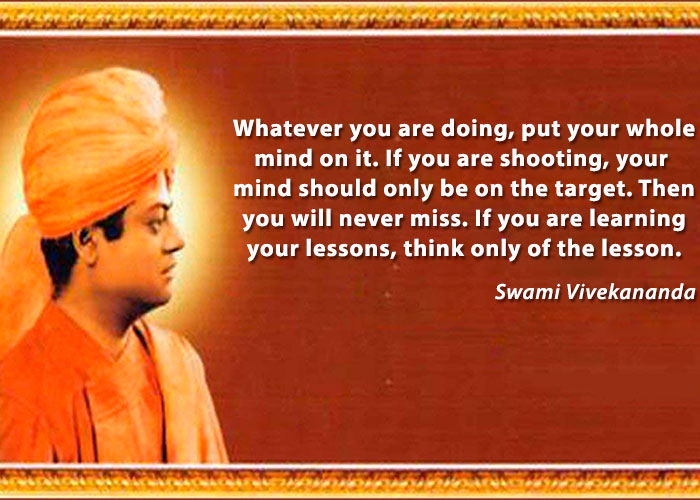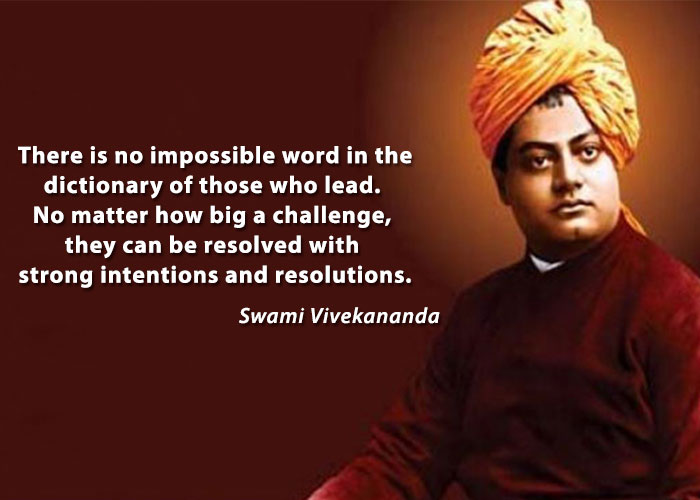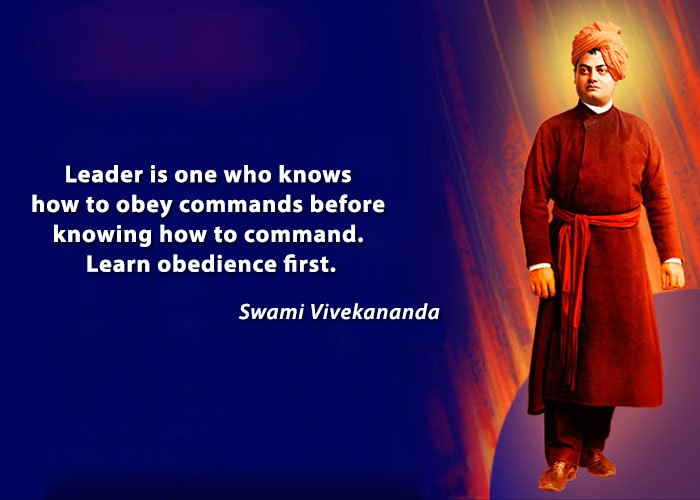7 Success Lessons from Business at the Speed of Thought by Bill Gates
Here are lessons from the book, “Business at the Speed of Thought” by Bill Gates. He is one of the most influential thinkers in the world.

Here are lessons from the book, “Business at the Speed of Thought” by Bill Gates. He is one of the most influential thinkers in the world.

In an increasingly frantic market, getting the story of your company catching the attention of potential consumers or customers can be a challenge. Hence the way you get in touch with your target audience and tell them your story makes the difference.
Every day the average internet user is bombarded by the equivalent of 174 data newspapers, so it’s no wonder that our hunter-gatherer brain is having difficulty keeping pace. Thus, in order to stand out in the whirlwind of messages, companies need, more than ever, to create concise, coherent and compelling stories.
In the book, “Storyteller’s Secret”, the author Carmine Gallo reveals some of the techniques used by great leaders to get their message to the recipients. Here are ten examples, and the lessons we can learn from their storytelling skills.
1. Steve Jobs, founder of Apple

Storytelling Secret: Being in love.
The way Steve Jobs addressed the public in his famed speech at Stanford University in 2005 with “Stay Hungry, Stay Crazy,” has garnered 20 million views on YouTube. The text is now part of Pages, the Apple Mac’s word processor. Steve Jobs influenced people to do the best work of their lives and do what they love.
Lesson: Share the passion that motivates you.
2. JK Rowling, Author

Storytelling Secret: Structure.
In his speech at Harvard University in 2008, JK Rowling made a tripartite construction of his history, with:
i) a “triggering event” (in which he chronicled the years of unemployment and single parenthood.
ii) The details of an epic transformation the time he started writing the story of “Harry Potter”)
iii) The life lesson he learned (“you will never really know yourself, or the strength of your relationships, until both are tested by adversity”).
Lesson: Create your legend, highlighting the difficulties you have encountered.
3. Howard Schultz, former chairman and CEO of Starbucks

Storytelling Secret: Repetition.
In telling and retelling the history of the discovery of the espresso culture on a business trip to Italy as a Starbucks employee in 1983, Howard Schultz helped boost the company’s credentials as a sophisticated coffee brand.
Lesson: Remember personal experiences or events that inspired your company, repeating them until they are part of the organization’s folklore.
4. Bill Gates, founder of Microsoft

Storytelling Secret: Surprise.
At the 2009 TED Talk on malaria, Bill Gates opened a bottle full of mosquitoes ahead of the audience. “There are no reason why only poor people have to go through the experience,” the tycoon and philanthropist told the audience.
Lesson: Shocking the audience with well-timed events, twists in history or going beyond their expectations.
5. Sara Blakely, founder of Spanx

Storytelling Secret: Focus on a challenge.
By repeatedly gifting the audience with the story of how she cut the feet of a pair of socks to create underwear that shapes the body, Sara Blakely tells how she started a revolution in the lingerie segment and put together a $1 billion fortune.
Lesson: Bring people into your world, giving them challenges that they can identify with.
6. Sir Ken Robinson, Education Specialist

Storytelling Secret: Humour.
Ken Robinson’s speech in 2006, under the theme “How Schools Kill Creativity,” is still the most popular TED Talk of all time. Splashing the speech with excellent jokes almost turns him into a stand-up comedy performance. With an average of two gigs a minute, the speech had more of a joke than the movie ” Anchor-man” (with Will Ferrell in the lead role and 1.6 gigs/minute). “If they’re laughing, they’re listening,” Robinson observed wisely.
Lesson: If you have serious stories to tell, try wrapping them in humour.
7. Sir Richard Branson, founder of the Virgin group

Storytelling Secret: Simplicity.
Richard Branson developed the art of business pitch at the boarding school when he tried to sell the students’ magazine to sponsors through a pay phone. “Dyslexia has shaped my style of communication – and Virgin’s,” he said. This is because the company “used clear and simple language. If I could quickly understand a concept, it was good to move on.”
Lesson: Conciseness. As Branson says, “if something cannot be explained on the back of an envelope, then it’s crap.”
8. Pope Francis

Storytelling Secret: The “rule of three”
The pontiff’s Jesuit formation taught him that the human brain most easily remembers things in sequences of three. “Man has defied natural beauty with social structures that perpetuate poverty, ignorance and corruption,” said the leader of the Catholic Church to 6 million people at an outdoor mass in Manila in 2015.
Lesson: Three is the number magical – and a strong rhetorical device used since Aristotle.
9. Chris Hadfield, Astronaut

Storytelling Secret: Photos.
TED Talk by the Canadian astronaut, “What I Learned by Being Blind in Space” received a standing ovation. The presentation with 35 photos illustrates the scary incident of when he stopped seeing in the middle of a space walk. And based on neuroscience knowledge: it is easier to remember images than words – several studies have shown that people can remember more than 2,500 photos with 90% accuracy several days after they have seen them.
Lesson: Strong images (or even resorting to vivid analogies) are perfect for creating a memorable story.
10. Sheryl Sandberg, COO of Facebook

Storytelling Secret: Emotion instead of data.
At the 2010 TEDWomen Conference, Sheryl Sandberg put aside the data she had prepared and talked about how her three-year-old daughter had clung to her leg before she took the plane to the event, and the difficulties women face in getting to positions. The speech became viral, and later Sheryl Sandberg would eventually write the book “Make It Happen-Women, Work and the Will to Lead”.
Lesson: Do not give too much data to the public – the emotional quotient (EQ) is stronger.

In the 21st century global leaders will need to create policies for universal inclusion. The road ahead will be challenging, numerous media outlets and institutions are forewarning about the planet suffering from overpopulation. The growing human footprint on the world can be a major cause for concern with scarce resources.
As of December 2018, the total population of the world is 7,545,069,834 people. It’s over 7.5 billion. This number is continuing to increase each day. The improving healthcare standards and increasing average age of world citizens will pose serious threats in the future. The global institutions and think tank will need to take proactive measures to overcome the impediments of an overcrowded world.
Interestingly, the population of the world is distributed in a skewed way. While some of the countries are deserted and bereft of people, the 10 most populous countries have more than half of world’s people. Here we look at the most populous countries:
1. China

China is the most populous country in the world. It has a total population of 1,417,684,454 or 1.41 billion. The population growth of China has gradually slowed down.
The government has taken measures to curb the population growth and expects that no more than 1.45 billion people in China by 2025.
However, there are some disputes on the figures and believed that as many as three million Chinese babies are hidden by their parents every year. This is due to the country’s strict family planning policy known as the “one-child policy”.
So, China’s population may actually be even more than the official figures suggest.
2. India

India is currently the second most populous country in the world. It is also slated to overtake China as the most populous country around 2024, as per forecast by UN.
India has a population of 1,361,763,415 or 1.361 billion. Its population growth rate is 1.2% and expected to touch 1.5 billion by 2030.
India is well poised to be a global power due to its young population with over 65% population below the age of 35 as of 2018. India has a relatively high percentage of young people that may augur well for its future.
3. United States

The economic superpower of the world is in the third place in terms of its population. United States of America has a total population of 327,989,410 or 327 million.
The USA has a large number of migrants, legal and illegal ones too. The number includes the effective population of USA. The USA has a well controlled growth rate of 0.8%. The UN projection claims the population of USA will reach about 350 million in 2025 and 440 million in 2050.
4. Indonesia

Population: 268,234,757
Indonesia is the fourth most populated country in the world. It has a population of 268,234,757 or 268 million. Indonesia is the fourth most populous country in the world and third in Asia after China and India.
Java, an island of Indonesia, is one of the most densely populated areas in the world. Indonesia is very ethnically and culturally diverse, but Javanese people account for almost half of Indonesia’s population.
Indonesia has a fairly effective family planning program since the 1960s, and a growth rate currently estimated at one percent. The population is expected to be around 273 million by 2025 and 306 million by 2050.
5. Brazil

Brazil is the second most populated country in the Western Hemisphere. The country is home to about 211,669,300 people or 211 million inhabitants.
According to the OECD and the World Bank, Brazil’s population will continue to grow at a relatively steady rate and is expected to reach 223 million by 2025.
The population of Brazil is quite diverse. It has a number of races and ethnic groups. The median age of Brazil is 31.7 years, which makes it another country with relatively young population.
6. Pakistan

Similar to their neighbors India, Pakistan also comes into the category of an overpopulated country. Pakistan is currently the sixth most populous country in the world. It has a population of 202,796,392 or 202 million.
Projections indicate that over the next few decades the number of residents of Pakistan will continue to grow rapidly. Pakistan has a relatively young population and less than 40% of its population lives in urban areas.
7. Nigeria

Nigeria is the most populous country in Africa. It accounts for almost one sixth of the continent’s population. It also accommodates one fifth of the Sub-Saharan African population. The total population is 198,537,135 or 198 million. Nigeria’s population is growing quite fast.
It has a rapidly growing population. It is estimated that by the mid-21st century Nigeria will overtake all the countries on the list except for China, India and the United States. Around 50% of the total population lives in urban areas.
8. Bangladesh

The population of Bangladesh is estimated to be 167,259,797 or 167 million.
Bangladesh is home to larger number of people than Russian, Russia is almost 119 times bigger in size though. Bangladesh is one of the most densely populated countries in the world.
Bangladesh is the eight most populous country. It has a population that is largely ethnically homogeneous. Around 98% of the people in Bangladesh are Bengali Muslims.
9. Russia

Russia is the largest country, but ranks the ninth most populous country in the world. The population of Russia is 143,928,296 or 143 million. Interestingly, the Russian population was 148,689,000 in 1991. In the last two decades, almost 5 to 6 million people have decreased in Russia.
The population growth rate is also negative with declining birth rates, increasing death rates and immigration playing its part.
10. Mexico

Population: 131,582,725
Mexico rounds off the tenth spot in the world with a population of 131,582,725 or 131 million. Mexico shares its border with the USA. Mexico’s population grew fast throughout the 20th century. However, in the last five years, this has reversed and average growth is now steadier at less than 1%.
Mexico is the largest Spanish speaking country in the world. It also ranks third highest in population after America and Brazil in Americas. Approximately 78.64% of Mexican population lives in urban areas.
Here are some of timeless principles & secrets for building a great company. These lessons are taken from companies that have lasted for more than 100 years.

Swami Vivekananda is a name that inspires admiration and awe around the globe. His words and teachings have influenced the greatest scientists like Nikol Tesla, visionaries like J.R.D Tata to several top leaders of the countries.
When he spoke in Chicago in the parliament of religions in 1891, the world took notice of his message of universal brotherhood. His extra ordinary life and mission changed the perspective of foreign countries towards the cultural superpower, named India.
Swami Vivekananda’s teachings continue to inspire men to live their highest ideals and dedicate themselves to their highest pursuit. He was a leader who is reminisced by generations and continues to be a guiding force for leaders of the world.
Swami Vivekananda preached sacrifice, dedication, service and work with absolute commitment. He aroused the highest capabilities in a man by reminding them of their own divinity that made anything possible.
India celebrates his birthday as National Youth Day to celebrate the wisdom, teachings and mission of the soul that illumined the world with his presence. Here we look at the top leadership lessons from the timeless master.
1. Believe in Yourself

“Believe in yourself and the world will be at your feet.”
Swami Vivekananda
A leader needs to believe in himself, his mission and what he is doing. When you have unwavering faith and belief, you find ways to accomplish things you want in your life. Difficulties, hardships and struggle make a true leader more determined to succeed.
2. Dedication to Work

“Even the greatest fool can accomplish a task if it were after his or her heart. But the intelligent ones are those who can convert every work into one that suits their taste.”
Swami Vivekananda
All great leaders remain deeply dedicated to their work. It doesn’t matter what you are doing, but how you are doing it that makes the ultimate difference. Great opportunities are always possible for the one who is dedicated to what he is doing.
3. Face The Problem

“If you ever feel afraid of anything, always turn around and face it. Never think of running away.”
Swami Vivekananda
A true leader will always have a mission and purpose in life. He will be ready to fight the world for it. You cannot solve problems by running away from them. Sooner or later, you will need to face the problems and conquer your fears. Leaders inspire people to face problems and find solutions for the benefit of all.
4. Focus on the goal

“Whatever you are doing, put your whole mind on it. If you are shooting, your mind should only be on the target. Then you will never miss. If you are learning your lessons, think only of the lesson.”
-Swami Vivekananda
The difference in quality of two men lies in their ability to concentrate. When you focus your mind, energies and work towards your goals, success is assured. Leaders who work with single pointed focus are achieve their goals and vision.
5. Motivator

“All power is within you. You can do anything and everything. Believe in that”
Swami Vivekananda
Leaders empower their people by believing in them, trusting them and they rise to greatness as a result. A leader instills belief in others where they can accomplish things that they never thought were possible. Swami Vivekananda preached about the infinite power that resides in each of us and how it unleashes itself to help us achieve anything we want.
6. Strong Intentions and Resolutions

“There is no impossible word in the dictionary of those who lead. No matter how big a challenge, they can be resolved with strong intentions and resolutions.”
Swami Vivekananda
A leader always has great intentions, big vision and the resolution to try until he succeeds. When you are working on a noble mission with the right intentions, you may face hurdles, but you will make it in the end. Important is not to lose focus, change directions or give up.
Great efforts always lead to great results. Every problem is a challenge that can be overcome when you have a strong resolve.
7. Stay Disciplined

“Leader is one who knows how to obey commands before knowing how to command. Learn obedience first.”
Swami Vivekananda
A leader knows the rules of the game. He is the one who sets the benchmark for others to follow. Leaders take the responsibility, they walk the talk and never ask their teams to do what they wouldnt do themselves. A leader sets high expectations, standards and ideas for others to follow.
To sum up Swami Vivekananda’s life and selfless leadership, he once said “This life is short, the vanities of the world are transient, but they alone live who live for others, the rest are more dead than alive.”

Supreme court reinstates CBI Director, but the PM Modi led three member committee removes him again within a couple of days.

In today’s cut throat competition, if anyone wants to survive, he has to improve his ability to learn faster, adapt to changing demands and stay relevant in technology driven world.
Malcolm Gladwell’s book outliers states that it takes 10,000 hours to become expert in any field. Yes, it takes several hours of commitment to be an expert in any field.
However, most people are running short of time and want to maximise learning in short periods. In this article we are sharing some smart ideas by which any person can increase the ability to learn faster just by spending just 40 minutes per day.
1. Break the task into parts and apply 80-20 rule
Henry Ford said, “Nothing in particularly hard if you divide it into small jobs.”
Breaking down the task into small parts and prioritising which things need to be addressed first can make your job easier. The Pareto Principle states that for many events roughly 80% of the effects come from 20% of causes. Or in other words, 80% of your learning can be done by focusing on the 20% core topics. To learn faster, you can prioritise on things that matter the most.
Suppose you want to learn how to play guitar so you can break the skills down into components like, reading music, proper posture, learning chords, proper finger placement, finger picking and so on. Experienced guitarists will tell you that learning chords and finger placement are the two most important things for learning Guitar. By learning only two chords & finger placement you can learn many songs.
2. Learn from an Expert or Coach

No matter what skill you want to accomplish, there must be someone out there who is already good at it. So, find a person who is already getting the results you want, figure out where you can find these people and model your own journey.
If you don’t know any expert personally from whom you want to learn, than you have to do some research, ask your friend circle or search that person online, because internet has a world of resources hidden inside it. You can find the best professionals online and even explore their videos, blogs and other stuff to learn.
3. Learn From Multiple Sources
Studies shows that the more ways you experience a piece of information, the more likely you are to retain it. Why? Because different learning media activate different parts of your brain. When different parts of your brain work together synchronously, you can retain knowledge better and remember things quickly.
So, start reading books, listen to audio tapes, watch videos, use learning apps to practice your chosen particular field. Try to involve all your five sense in your learning program so that you can learn quickly and effectively.
4. Research less and Practice More

“For the things we have to learn before we can do them, we learn by doing them.”
Aristotle
You learn best by practicing not by theory. Learning by doing is important to develop quick and effective expertise in any field. For e.g. if you want to learn football, you will never be a good player by reading books instead of playing football. Our brain learns easily by doing things not by just reading, listening, or watching it.
The more time we spending doing something, the better we become at it. To accelerate your learning, start practising what you want to learn and train yourself to improve consistently.
5. Get Immediate Feedback
In a survey that was done among famous rock bands of US, only those rock bands consistently performed well who worked on the feedback given by their listeners.
Feedback and criticism are very important for improving yourself and learning. Getting feedback from others always plays a crucial role in learning things faster. You can realise your blind spots and mistakes when others give you honest feedback.
Once you’re aware of the shortcomings, you can always take the corrective measures and improve yourself. Many times negative feedback and criticism from an expert with the right intention will be more helpful to your learning than praise. It is invaluable to get feedback from people around you. They could be your friends, coaches, mentors, teachers, your manager or experts in your field.
6. Give yourself a Deadline

There is a law called Parkinson’s Law that states that “work expands so as to fill the time available for its completion.” Our brains work with more focus and dedication when we have a clear deadline and goal.
When you give yourself less time & tight deadlines to do something, you work more efficiently without wasting time. So always put a deadline and be committed to learn in that period only. You cannot have more time, so make best use of whatever is available to you.
7. Commit to lifelong learning
When we get an opportunity to learn something new, we enter into a phase what many people called Honey Moon phase. In this stage our brain releases Dopamine chemical. It is the chemical that mediates pleasure in the brain. It is released whenever we experience something new or pleasurable.
When honey moon phase fades we started getting frustrated with failures and often give up what we wanted to pursue. Now the question arises how to overcome this? According to author of a bestselling book, Josh Kaufman, ”To get good at something it takes about 20 hours of focused deliberate practice.” When you get into the practicing phase make a commitment that you won’t quit without practicing it for atleast 20 hours.
I know it sounds crazy that at the beginning we have said it took 10,000 hours to become expert at something, and now we are saying 20 hours are enough to learn something, which is far less than that. But studies have proven it true, that just practicing anything for 40 min per day for a month will make you learn something quickly & be reasonably good at it.

Time commitment is where people have the biggest trouble, but it is also the key to success. It is not necessarily fun to practice the same skills repeatedly for several days.
People tend to build what Kaufman called the Frustration barrier, which is when we feel we are not improving quickly despite committing a lot of time and efforts. This is where we lose confidence, and then we tend to quit. But if you stay committed for the first 20 hours practicing the skills, you will develop the skill.
This is a fascinating video that contains 10 habits of highly effective entrepreneurs. Entrepreneurship is hard. Learn what makes entrepreneurs successful and separates them from the rest.

Running a start-up successfully is not always an easy task. Infact, it is quite hard and daunting for most entrepreneurs. You need to manage so many things and even when things are going well for you, market changes, disruptions, & several other factors can harm your business. Just an idea is not enough to set up a business; you need a realistic plan & flawless execution to turn your dream into reality. As they say, “Well begun is half done.”
So, if you are planning to start your own business, before proceeding further, consider the following factors, it will help you organise things and start on the right note.
1. Always put your Idea into Writing

Making a plan in writing makes your subconscious mind perfectly prepared for it, if your subconscious mind don’t understand your plan clearly, you will get confused, demotivate, tired and drained after few days.
So before taking any step further ask questions to prepare a roadmap – What type of business you are going to do? How will you generate revenue? Who will be your customers? How will you build your team? What resources will be needed to keep your business going for the first year?
Do deep analysis of the type of business, like if you are willing to open retail store than, only focus on skills needed for selling and purchasing of products, don’t go for manufacturing the goods this is not your area of working. Expertise in your business areas is a must for survival and success.
And on the other hand, if you are a manufacturer than ask yourself, where you can buy the raw material, what would be the manufacturing cost, maintenance of machinery etc.?
2. Analyze your Competitors
Don’t hesitate to take suggestions from people who are running the same business or have done it in the past. Understand your competition, what they offer and how they are able to succeed.
Analysing competition will give you practical ways of planning your set-up. Your competition is facing the real life problems. It has become easier than before to understand your competition using digital platforms.
You can find these people at local community or clubs or on social platforms like Facebook , LinkedIn etc. Always keep in touch with them.
3. Identify your Customer

No business in this world can run successfully without satisfying their Clients. You need detailed knowledge of what your customer is looking for. How you will deliver product or services to them. What is the your customer’s key pain point? How your product and services addresses the client’s problems.
Never forget to take a feedback from your customers. This will not only help you in improving your offerings but also help you maintain good relations with clients. Clients will feel appreciated and valued when you respect and seek their feedback. Some of the suggestions can even enhance your products and services.
As they say, “If you will not take care of your customer than, your competitor will do it”
4. Market analysis
A start-up is always fighting the odds for its success. Even a small fluctuation in market can hurt your business badly. You need to understand the need for your product or service in the market.
So before going ahead you have to do a deep research of the product or service market need. You need to explore possibilities of profits and losses that can occur in your business.
For doing this you can consider local news papers, business magazines, understand your customers, talk to them about your proposed product or service and solicit their inputs at an initial stage.
5. Financial Planning

No business can survive without finance and revenue. VCs don’t fund businesses that don’t generate revenue for them. Finance is the backbone of any organization, so always pay full attention towards your financial status to keep your company running.
You can take inputs from financial advisors who can find feasible solutions to finance your business, avail loans, equity stakes etc.
You also need to take insurance regarding theft or any types of physical loss or damage to your business. Planning your finances can make or break your business.
There could be times when customers don’t make the payments they owe and sales can take longer than expected.
6. Find Good Resources
The most valued resources in a start-up can be the founding team members. They must be reliable, energetic and dedicated to the core. More importantly, they should all understand the vision of the start-up.
Building a good team requires lot of persistence in getting the right skills and combinations. The team should have members that can get the work done at a good pace and complement each others skills. You cannot afford to have redundant people in a start-up.
7. Promotional Activity

How your customers will find you in the initial stages? There wouldn’t be too many people who will know your company in the early days.
You will need to find the right platform to promote your business. Offer trial runs of your products to customers, run targeted customer campaigns, collaborate with other companies to promote your products and services.
The digital platforms have given a very good avenues to connect with decision makers to promote your products and services in international markets at reasonable costs.
You may also consider the videos on how to promote your business, on YouTube and learn a few tricks for free.
8. Organise and Automate Your Business
As we know that the technology is changing daily so you have to update and improve your business. Startups need to plan their projects carefully, stay organised and replicate their success over time for creating a sustainable business.
Many start-ups bite more than they can chew and others have nothing on their plate. Good planning and organisation is required for driving the right results. A lot of companies benefit from using tools like business process automation for productivity and organising business.
BPA tools can help business to track projects, keep things structured and utilise resources optimally. These tools can also be used to track client satisfaction and timely delivery of projects.
9. Always have Alternate Options

Sometimes even the best ideas may not work out in the end. It takes lot of time, persistence and experimentation to achieve success as an entrepreneur. Successful companies keep their options open. They are ready to pivot, try other ideas if the initial ones don’t work out.
It’s always good to have more than one stream of revenue in today’s fast changing world. Many businesses that do well in the long run develop and build alternate options that provide constant revenue streams.
10. Believe & have Faith
Success in a start-up is about your deepest beliefs and faith. Ultimately, you need to stick to your ideas and make them a reality. Great companies are built on beliefs and strong convictions. Great entrepreneurs never give up, they sacrifice, work hard and do whatever it takes to achieve success for their start-ups.
“Faith is all about believing, you don’t know how it will happen but you know it will.”
Sharon K. Brayfield

Imran Khan seems to be more worried about India than Pakistan. His recent comments on Indian minorities has drawn severe flak and ire from everyone including the Pakistanis.

Successful people have this uncanny ability to stay energetic all the times. They exude energy and enthusiasm that is hard to miss & contagious. They are always raring to go, radiating energy and attracting the right opportunities.
There seems to be a causal relationship between energy and success. Energetic people are more successful than lousy people.
Gallup surveyed 10,000 people & only 11% said they felt like they had a lot of energy. A lot of people feel stressed, lack energy and eventually fail to achieve success.
We all have limited energy, but it is possible to maximise how you spend your energy. You can create abundance and enrich your life by using your energy well.
1. Overloading yourself with Unnecessary Decisions

You need to maximise your energy reserves by eliminating unnecessary decisions. Every decision you take adds to your cognitive load. The most successful people have automatic morning routines and reduce their choices by eliminating the unnecessary stuff.
Several studies have shown that our brains can only handle a certain number of decisions per day. Once exhausted lose self-control and will-power. But great athletes, top professionals and all great achievers maximise their energy by spending it on things that matter the most.
For e.g. what you wear, what time you start your day, what you eat for breakfast etc. shouldn’t engage your brain first thing in the morning. The most successful people are driven by well planned routines. It helps them focus on important activities rather than mundane pursuits.

2. Complaining & Negativity
Complaining and negativity never make life miserable for anyone other than you. You torture yourself when you complain.
Several studies show that complaining and negativity harm your health and brain. They make you pessimistic, gloomy and
There are numerous studies that show the negative impacts of pessimism, bitterness, and regret on your health. The more negativity you have the worse your body will get. Here is a study conducted by Mayo Clinic that shows how harmful these emotions can be for you.
Instead of negativity and complaining, pay attention to what is good in your life. Be grateful for the things that are good. Find solutions for your problem, but don’t complain. The most energetic people are looking at ways to improve & make things better.
3. Direction and Focus

When you change directions too often, work with negative attitude and constant distractions, you will spend time without accomplishing anything significant.
When you work with whole hearted attention, focus and commitment, it energises you. It helps you do great work. Look at any great work of art, creativity and historical achievement; it was done with full commitment. The secret is direction and focus.
In a Harvard business school study it was found, “Of all the events that engage people at work, the single most important — by far — is simply making progress in meaningful work.”
When you work with positive attitude and commitment, it energises you and makes you accomplish great feats. It will even surprise you what you are capable of achieving when you are committed and believe in what you are doing.
4. Unsteady Mind

An unsteady mind can make your life hell. It can dissipate all your energy and make you restless. There is simply no escape from a turbulent mind full of unwanted thoughts. A mind full of thoughts will make you mediocre at everything.
How can you tame your mind? It’s possible to do it with meditation. The ability of the mind to stay in the present moment is crucial for achieving success in anything you do. It means the mind should wander.
There are hundreds of studies and researches on how beneficial meditation is for your mind and body. Meditation is a process where you connect with yourself. With constant practice, you can subdue your mind and quieten it.
Siegfried Othmer has done extensive research and has been involved with neurology since 1985. He conducted research on participants who were meditating. Those who meditated showed an average gain in IQ of 23 percent.
Meditation helped participants to lower their stress levels, but improved their creativity, concentration, and self-awareness.
Meditation is a process where you can energise yourself with abundance. It will make you steady your mind and make you ready to take on whatever comes your way.
Conclusion
How energetic you feel is often decided by your perceptions and attitude. A positive approach means you make the best of what you get. People who have enthusiasm and energy conquer the toughest problems. They work with great intensity and commit themselves in whatever they pursue. They become magnets for attracting success and great opportunities.